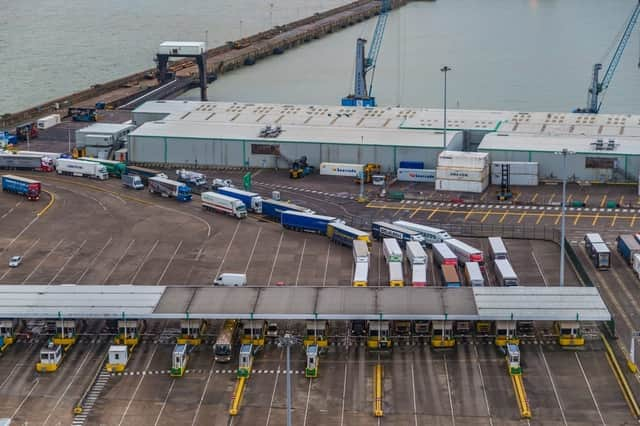This is everything you need to know about Operation Yellowhammer


You may have seen Operation Yellowhammer mentioned on the news and social media recently - but what does it mean?
Operation Yellowhammer is the government codename for all of the work that is being done across government to establish and address what the immediate impact of a no-deal Brexit would be for the UK.
Advertisement
Advertisement
This week, the document was published in full, after MPs voted to force its release to the public.
Dated August 2 2019, it outlines what are described as “reasonable worst-case assumptions” of the impact of leaving the EU without a deal on 31 October, as well as how the government plans to deal with them.
Twelve areas of risk are covered in the dossier. These include things like healthcare, transport, the cross-border movement of people and goods and food and water supplies.
And the publication of the report has revealed that ministers believe riots on the streets, food price rises and reduced medical supplies are real risks of the UK leaving the EU without a deal.
Advertisement
Advertisement
A secret dossier
The dossier was initially a secret, however its existence was first revealed in 2018 when somebody was photographed leaving the cabinet office with documents labelled with the code name.
The government attempted to resist this week’s publication of the Operation Yellowhammer report, however lost a vote in the Commons on Monday (9 Sep) before parliament was suspended and was forced to release the documents.
Ministers did successfully block Dominic Grieve’s motion to release communications between Downing Street and government aides regarding the suspension of parliament.
Michael Gove said MPs' request to see emails, texts and WhatsApp messages from Dominic Cummings, Boris Johnson's chief aide, and eight other advisers in Downing Street were "unreasonable and disproportionate".
Advertisement
Advertisement
The six-page Operation Yellowhammer document - which was leaked to the Sunday times last month - lists delays at borders for goods which could last up to three months and shortages of supplies, as well as public disorder, among the primary concerns.
The risks Operation Yellowhammer reports in detail
The Operation Yellowhammer document states that certain fresh food supplies will “decrease” and that "critical dependencies for the food chain" such as key ingredients "may be in shorter supply".
Although it says this will not lead to food and energy shortages, it says prices will increase “significantly” and this could negatively impact “vulnerable groups”.
By this, it means that low-income groups "will be disproportionately affected by any price rises in food and fuel".
Advertisement
Advertisement
It also highlights a potential risk of “panic buying” that could exacerbate the situation. Other vital supplies could also be subject to shortages, according to the report.
The importation of cross-Channel goods could face "significant disruption lasting up to six months".
"Unmitigated, this will have an impact on the supply of medicines and medical supplies," it says.
"The reliance of medicines and medical products' supply chains on the short straits crossing make them particularly vulnerable to severe extended delays."
Advertisement
Advertisement
Other concerns raised include potential two-day waits for lorries attempting to cross the channel, public protests from people on both sides of the Brexit argument, businesses ceasing trading, adult social care providers failing and a growth in the black market for goods in short supply.
The government also expects a return to a hard border in Ireland, as plans to prevent this proved “unsustainable”. It says that “direct action” may come as a result of this.
Retailers have said that the fears of short food suppliers confirms what they have been saying could be the result of a no-deal Brexit.
And the British Medical Association has described the report as “alarming”.
Advertisement
Advertisement
Following the publication of the Yellowhammer papers, Labour has called for parliament to be recalled.
The opposition party has said that it is essential to end the suspension - which started on Tuesday (10 Sep) - in order to take all steps necessary to prevent a no-deal Brexit.